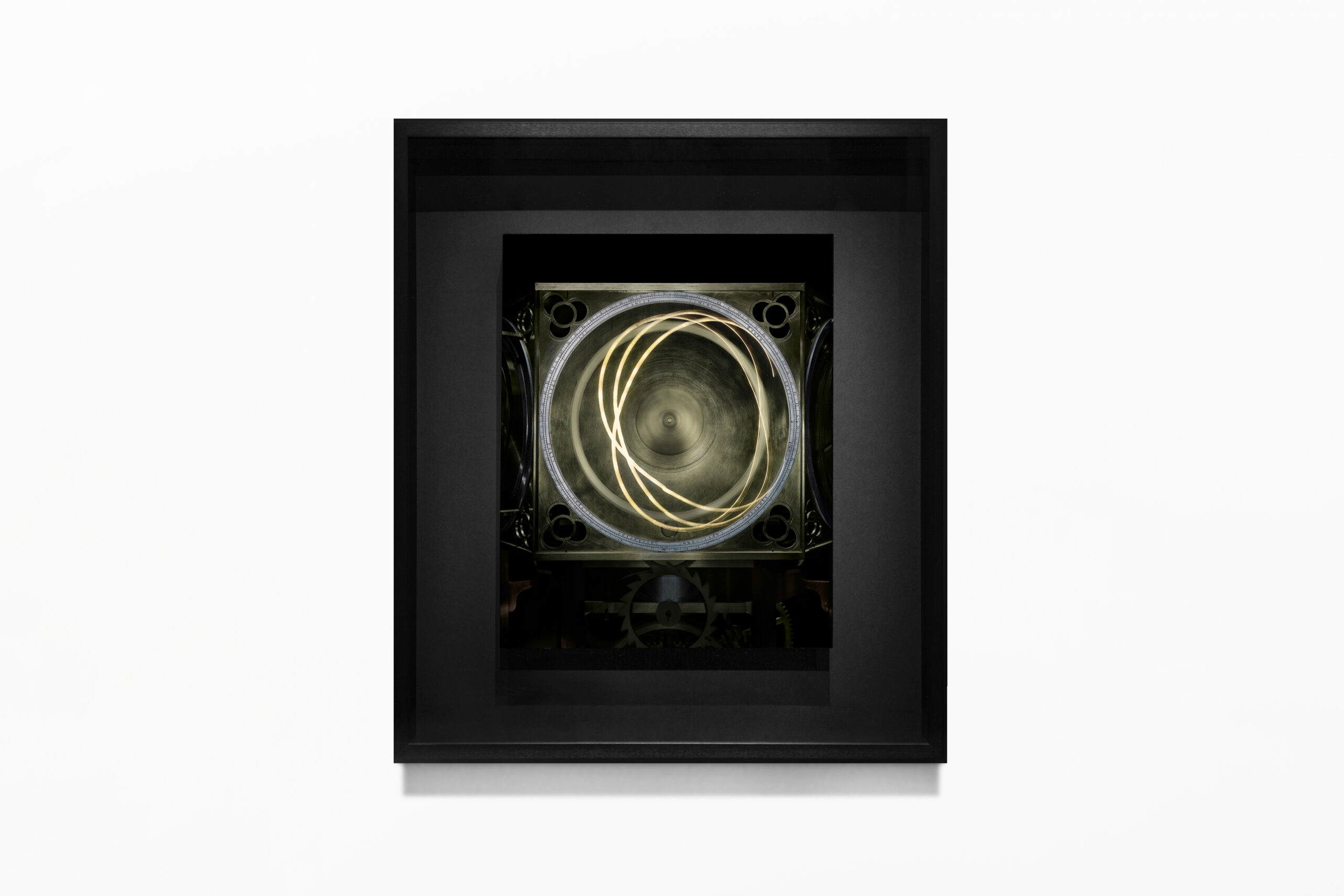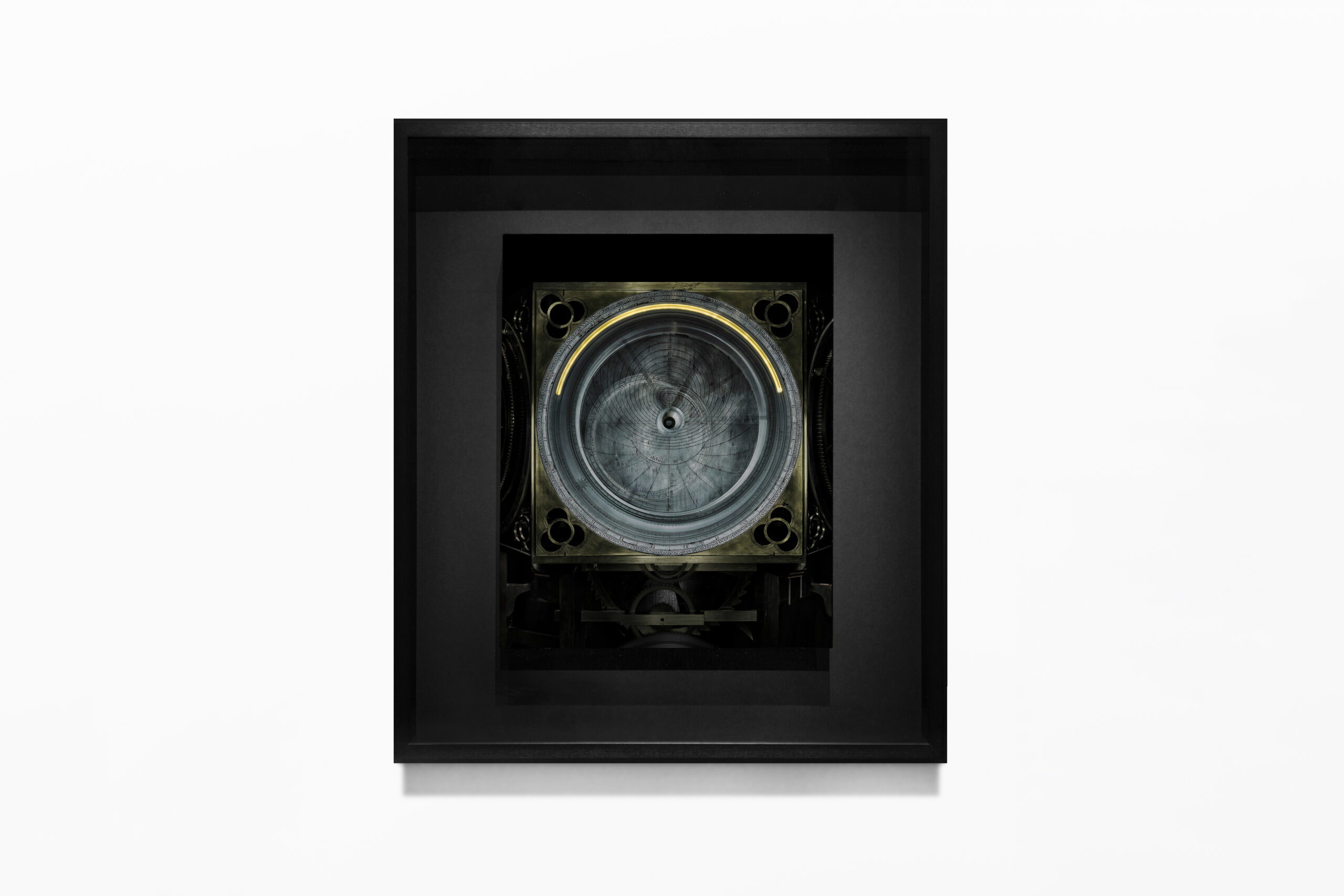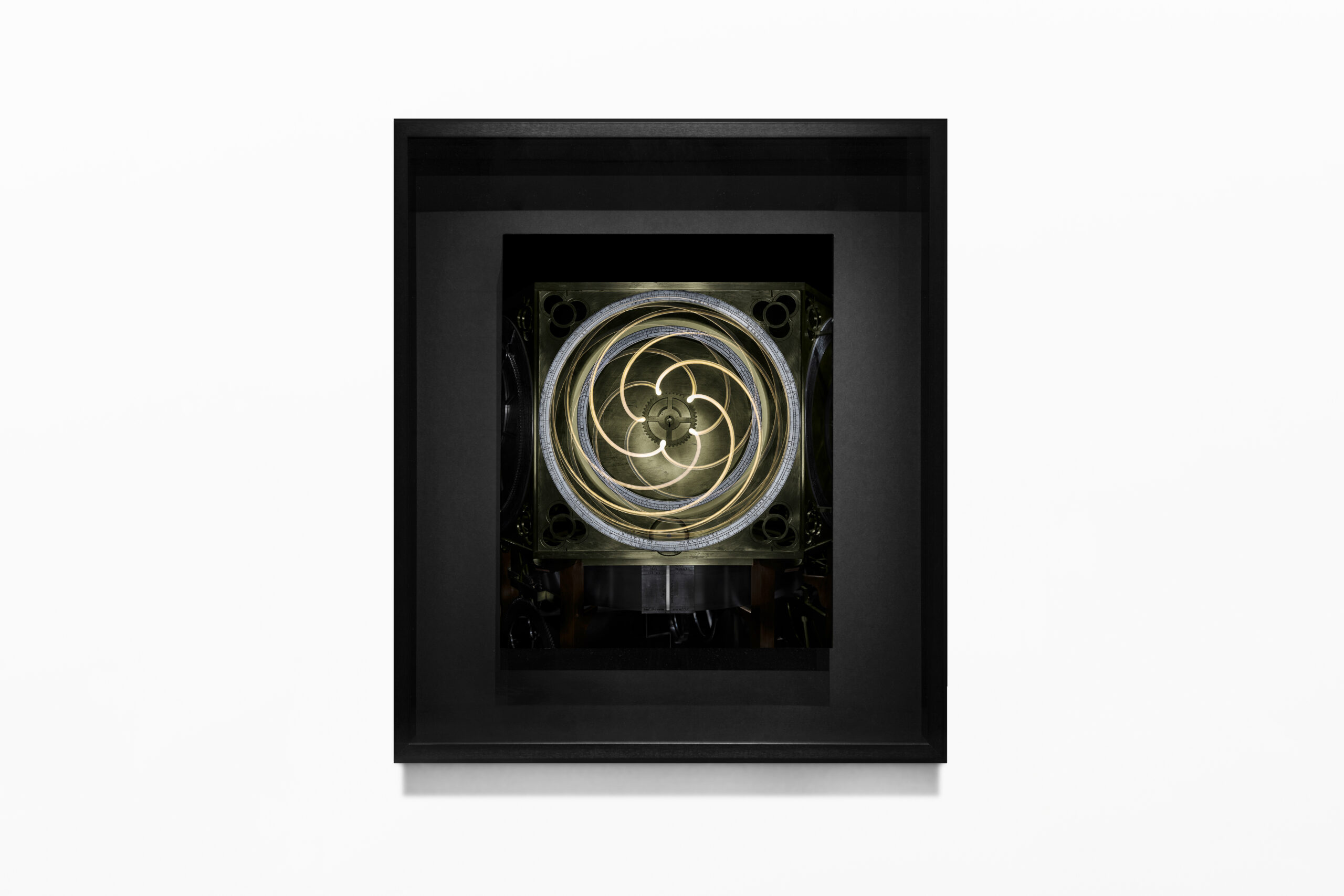Raphaël Dallaporta
Le Soleil, La Lune, Venus from The Astrarium Series,
2020
Sublimation print, mounted and framed with glass
83 x 73 cm
Edition of 3
Courtesy Jean-Kenta Gallery, Paris
The works in the series Astrarium (2020) are a metaphor for the nonlinear nature of progress. Each photograph is the result of setting in motion a dial of the Astrarium, the oldest clock known in history, made in the Middle Ages by Giovanni Dondi and which disappeared during the Renaissance. This instrument achieved the feat of calculating the positions at any time of the year of the seven major stars and planets known to science at that time by materialising the geocentric system.
In the mid-1980s, the Musée International d’Horlogerie (MIH, La Chauxde-Fonds, Switzerland) succeeded in reproducing the clock thanks to Dondi’s original manuscript preserved for six centuries in Padua.
By creating moving images of this clock, which was considered a wonder of the world at the time, Raphaël Dallaporta has created a new representation. Collaborating with Masaki Kanazawa, conservator at the MIH, the artist photographed the movement of each of the Astrarium’s dials using a light source and long exposure times. The light thus forms loops that return to their course while unfolding; the planets seem to move backwards in order to move forwards, a phenomenon known as retrogradation which, for the artist, constitutes a metaphor for the nonlinear course of progress, following the example of what the philosopher and historian Ernest Renan wrote in L’Avenir de la science [The Future of Science] (1890): “True progress sometimes seems to be a retreat and then a return. The retrogrades of humanity are like those of the planets. Seen from the earth, they are retrogrades; but absolutely they are not. The retrogradation occurs only to the eyes that see only a limited portion of the curve”.
For more information and sales enquiries, contact: sales@particolare.com




